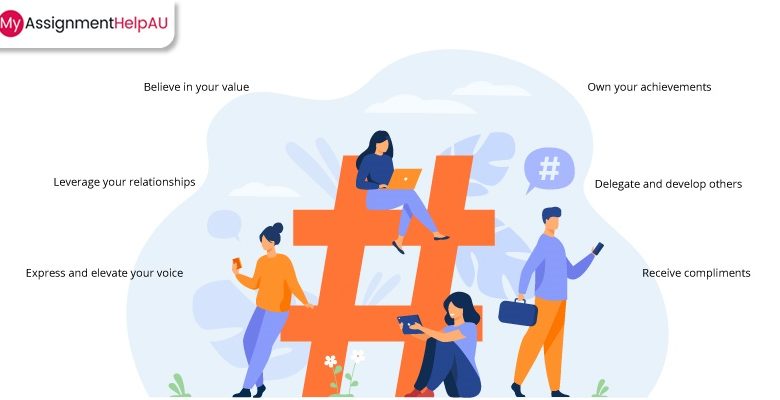Six Habits of Highly Promotable People

Being productive or “effective,” entails attaining intended outcomes and carrying out duties competently and efficiently. This appears to be straightforward, and it is in some ways. It’s simple to infer that most businesses value this talent, especially when it comes to leadership and management positions.
Essential suggestions and information regarding it may be found in the book “The 7 Habits of Highly Effective People.” Since its publication in 1989, Stephen R. Covey, the author, has made it a top seller. In more than 30 languages, at least 15 million copies have been sold.
Covey identifies what he thinks to be the common themes among individuals who attain high levels of efficiency in the book, which has considered his masterpiece, and teaches the reader how to accomplish each one. Even 30 years after its publication, the author’s advice is still relevant. He wrote it in the context of what he refers to as “character ethics,” which he believes includes universal and timeless qualities.
The Habits are divided into three categories.
The first three habits comprise talents that are dependent on the individual, progressing to their independence.
The fourth, fifth, and sixth habits, which range from independence to interdependence, are about improving group work, cooperation, and communication.
The seventh habit emphasizes continual progress and incorporates all of the other patterns.
There are seven behaviours of highly productive people that function in a ladder-like fashion. We’ve compiled a list of six of them in this article:
-
Take Initiative
This is the first habit discussed in the book because, according to the author, proactive action is the difference between being productive and not being effective. Proactivity, according to Covey, entails more than taking Initiative or thinking optimistically. Anyone who takes a proactive approach anticipates issues and does not flee when they cannot be avoided. According to the author, we have the impulse to affect the environment around us by being proactive, and this is what distinguishes humans from animals. We can choose how we will respond to each stimulus. That might be a method for us to take charge of our destiny.
-
Have a specific goal in mind.
In addition to being proactive, the author claims that having a well-defined goal makes it simpler to address difficulties. You’ll be able to concentrate on your objective while avoiding things that won’t bring you where you want to go. Being productive and completing several jobs fast, according to the author, is pointless if you don’t know why you’re doing it. It’s essential to be very clear about your long-term objectives. Asking yourself how you want to be remembered in the future, for example, is a fantastic place to start when establishing your purpose and values. This makes it much easier to follow an instruction securely.
-
Establish goals
It’s critical to establish habits that turn goals into actions if you want to attain your well-defined goals. According to Stephen R. Covey, one method to achieve this is to prioritize what is most valuable. Regardless of the technology, the author emphasizes remembering one basic rule: prioritize the important stuff first. The most critical activities are completed, while the less important ones are waiting in the background.
Not every scenario needs to be competitive for the writer. Aside from the unnecessary rivalry, the difficulty is that when two individuals who perceive the world through the lens of “win-loss” meet, the consequence might be “loss-loss.” A “win-win” mindset helps you to establish long-lasting connections since it encourages you to leave yourself to think about others. Competition may hinder individuals from having positive relationships, whereas competition can prevent people from having positive relationships.
-
First, comprehend, and then be comprehended
You must first listen to the difficulties with empathy before providing a solution. Listening may be a valuable skill in a society where everyone wants to talk, but no one wants to listen. As a result, Covey’s fifth recommendation is only to give remedies once you’ve recognized the problem. To do so, you must first understand and then be understood. It also necessitates paying attention to other people’s issues.
-
Make a synergy
This is beneficial advice for executives who want to improve their efficiency. We may build synergy by understanding the challenges of others, allowing us to generate new options and possibilities.
You strive to comprehend first and then look for strength and utility in diverse points of view, opening up new opportunities and circumstances in which everyone benefits. To do so, value diversity to broaden your horizons and search for the good in people. Each person views the world from their point of view, and while they may agree or disagree with others, a mix of diverse points of view can lead to forming a cooperative atmosphere. Without teamwork, achieving these outcomes would be challenging.
-
Keep improving
The final habit is one of continuous progress. This entails four aspects, each of which must be practised regularly and balanced as an investment in you. Physical, spiritual, social, and mental aspects are among them. This includes physical activities such as exercising and eating correctly; spiritual activities such as meditation; mental activities like as reading excellent books and writing (mental); and social activities such as developing meaningful (social) connections.
Conclusion
We hope you found the suggestions helpful in increasing your effectiveness. To know more about getting promoted, you can take the help of online Assignment Help providers. Please let us know if you have any additional ideas! Remember, you may use them in your professional life by seeking a mentor or mentoring others to help you improve and flourish.
Read: thetechbizz




